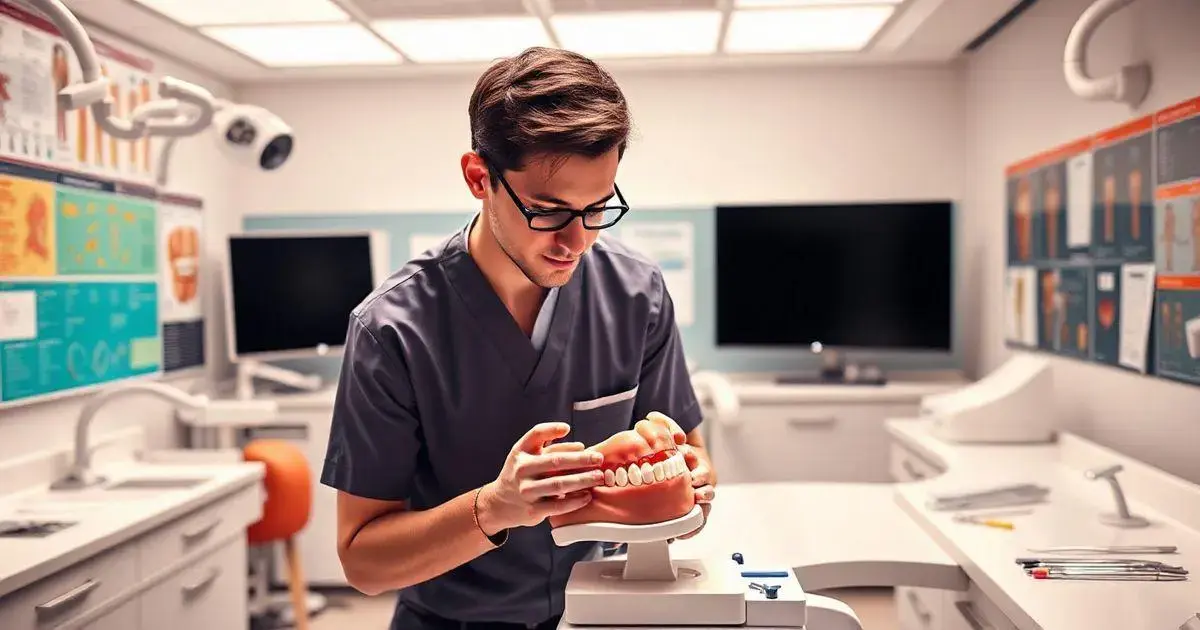Is a Degree in Dental Right for You?
Considering a career in dentistry but unsure if pursuing a degree in dental studies is the right path for you? Making such a significant decision requires careful consideration of various factors – from your interests and strengths to the demands and rewards of the dental profession. Let’s delve into the key aspects you should contemplate to determine if a degree in dental is the ideal choice for your future.

Factors to Consider Before Pursuing a Degree in Dental Studies
Understanding the Educational Requirements:
Before embarking on a journey towards a degree in dental studies, it is crucial to gain a clear understanding of the educational requirements. Research different dental programs, including prerequisites, curriculum offerings, and accreditation status. Ensure that the program aligns with your career goals and aspirations.
Step 1: Research Dental School Programs
Begin by researching various dental school programs to identify the specific requirements for admission. Take note of prerequisite courses, GPA criteria, and any additional exams, such as the Dental Admission Test (DAT).
Step 2: Evaluate Accreditation
Verify that the dental program you are interested in is accredited by the Commission on Dental Accreditation (CODA). Accreditation ensures that the program meets the standards necessary for licensure and quality education.
Step 3: Consider Specializations
Explore different dental specializations to determine if any align with your interests. Whether it’s orthodontics, pediatric dentistry, or oral surgery, understanding the various fields within dentistry can help you make an informed decision.
Financial Considerations:
Pursuing a degree in dental studies is a significant investment, both in terms of time and finances. Before committing to a program, thoroughly assess the financial considerations involved to ensure you are prepared for the costs associated with dental education.
Step 1: Estimate Tuition and Expenses
Research the tuition fees and additional expenses associated with attending dental school. Factor in costs such as textbooks, equipment, and living expenses to create a comprehensive budget.
Step 2: Explore Financial Aid Options
Investigate available financial aid options, including scholarships, grants, and student loans. Determine eligibility criteria and application deadlines for various financial assistance programs to help offset the cost of your dental education.
Step 3: Plan for Repayment
Develop a repayment plan for any student loans you may need to secure for your dental studies. Consider the implications of loan repayment on your future financial stability and create a strategy to manage debt responsibly.
Balance between Passion and Realistic Expectations:
Passion is a driving force in pursuing a degree in dental studies, but it is essential to balance your enthusiasm with realistic expectations of the field. Understand the challenges and demands of a career in dentistry to ensure you are prepared for the journey ahead.
Step 1: Gain Exposure to the Field
Seek opportunities to shadow dentists or volunteer in dental clinics to gain firsthand exposure to the profession. This experience can provide valuable insights into the day-to-day responsibilities and challenges faced by dental professionals.
Step 2: Reflect on Personal Commitment
Reflect on your personal commitment to a career in dentistry. Consider whether you have the resilience, patience, and dedication required to excel in this demanding field. Evaluate your strengths and areas for growth to determine your readiness for dental education.
Step 3: Set Realistic Goals
Set realistic short-term and long-term goals related to your dental education and future career. Establish a roadmap that outlines achievable milestones and aspirations to guide your journey towards becoming a successful dental professional.

Specializations Available in a Degree in Dental Studies
Specializations in a degree in dental studies can offer students the opportunity to focus on specific areas of dentistry, enhancing their skills and knowledge in those areas. One common specialization is in Orthodontics, where students learn to diagnose, prevent, and correct malpositioned teeth and jaws. Another specialization is Oral and Maxillofacial Surgery, focusing on surgeries related to the mouth, jaw, and face.
Additionally, students can choose to specialize in Endodontics, which involves root canal therapy and treating diseases that affect the dental pulp. Periodontics is another specialization available, focusing on the prevention, diagnosis, and treatment of diseases that affect the gums and other structures supporting the teeth.
Prosthodontics is also a popular specialization, where students learn to design and fit artificial replacements for teeth and other oral structures. Lastly, Pediatric Dentistry is a specialization focused on the dental care of children, teaching students how to provide specialized care to young patients.
Practical Training Opportunities for Dental Students
Hands-on experience is vital in a degree in dental studies, and practical training opportunities are essential for students to develop their clinical skills. One common practical training opportunity for dental students is through externship programs at dental clinics or hospitals. These programs allow students to work alongside experienced professionals and gain real-world experience.
Another valuable training opportunity is through dental simulation labs, where students can practice various dental procedures on realistic models before working on actual patients. Internships at dental offices or community health centers also provide students with practical training, allowing them to interact with patients and further develop their skills under supervision.
Participating in outreach programs and volunteering at dental camps or clinics can also offer practical training opportunities for dental students. These experiences allow students to engage with diverse patient populations and enhance their communication and patient care skills.
Job Outlook and Salary Potential for Dental Graduates
With a degree in dental, graduates can look forward to a promising job outlook and attractive salary potential in the field of dentistry. The demand for dental services is expected to increase, driven by population growth, an aging population retaining more of their natural teeth, and a growing focus on preventative dental care.
According to the Bureau of Labor Statistics, the job outlook for dentists is projected to grow faster than the average for all occupations. Dental graduates can explore various career paths, including opening their own private practice, working in group practices, or joining dental organizations or public health agencies.
In terms of salary potential, dental graduates can expect competitive earnings. The median annual wage for dentists is significantly above the average for all occupations, making it a financially rewarding career choice. The salary potential can vary based on factors such as location, years of experience, specialization, and type of practice.
Conclusion
Choosing to pursue a degree in dental studies is a significant decision that warrants careful consideration of various factors. Understanding the educational requirements and ensuring that the chosen program meets accreditation standards is essential for success. Moreover, exploring different specializations within dentistry can help align your passion with a specific area, enhancing your career potential and satisfaction.
Financial considerations also play a crucial role in this decision-making process. Students must not only assess tuition and associated costs but should actively seek out financial aid opportunities to alleviate the financial burden. Planning for repayment of any loans is equally important to ensure long-term financial stability post-graduation.
Finally, striking a balance between enthusiasm for the field and realistic expectations will be vital as you navigate your dental education and future career. Gaining hands-on experience through internships, externships, and volunteer work can provide invaluable insights into the daily challenges of dental practice. By setting achievable goals and continuously reflecting on your commitment, you are better equipped to embark on this rewarding path in the field of dentistry.
